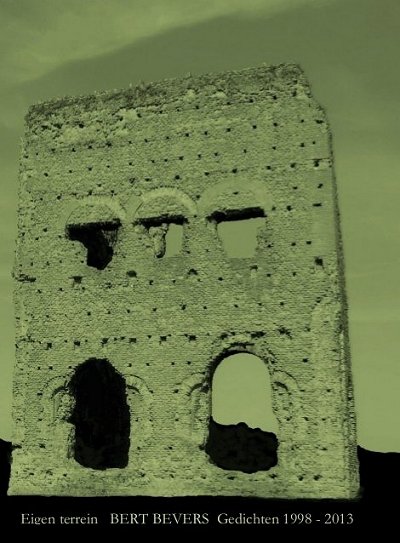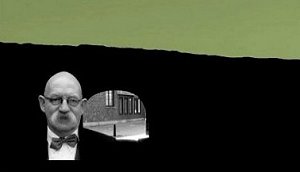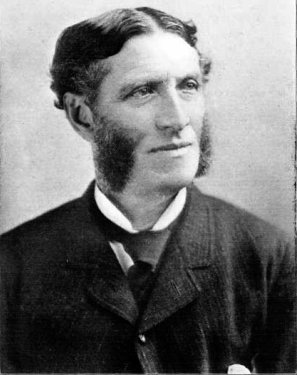Fleurs du Mal Magazine


Or see the index

George Gordon (Lord) Byron
(1788-1824)
And Thou Art Dead, As Young And Fair
And thou art dead, as young and fair
As aught of mortal birth;
And form so soft, and charms so rare,
Too soon return’d to Earth!
Though Earth receiv’d them in her bed,
And o’er the spot the crowd may tread
In carelessness or mirth,
There is an eye which could not brook
A moment on that grave to look.
I will not ask where thou liest low,
Nor gaze upon the spot;
There flowers or weeds at will may grow,
So I behold them not:
It is enough for me to prove
That what I lov’d, and long must love,
Like common earth can rot;
To me there needs no stone to tell,
‘T is Nothing that I lov’d so well.
Yet did I love thee to the last
As fervently as thou,
Who didst not change through all the past,
And canst not alter now.
The love where Death has set his seal,
Nor age can chill, nor rival steal,
Nor falsehood disavow:
And, what were worse, thou canst not see
Or wrong, or change, or fault in me.
The better days of life were ours;
The worst can be but mine:
The sun that cheers, the storm that lowers,
Shall never more be thine.
The silence of that dreamless sleep
I envy now too much to weep;
Nor need I to repine
That all those charms have pass’d away,
I might have watch’d through long decay.
The flower in ripen’d bloom unmatch’d
Must fall the earliest prey;
Though by no hand untimely snatch’d,
The leaves must drop away:
And yet it were a greater grief
To watch it withering, leaf by leaf,
Than see it pluck’d to-day;
Since earthly eye but ill can bear
To trace the change to foul from fair.
I know not if I could have borne
To see thy beauties fade;
The night that follow’d such a morn
Had worn a deeper shade:
Thy day without a cloud hath pass’d,
And thou wert lovely to the last,
Extinguish’d, not decay’d;
As stars that shoot along the sky
Shine brightest as they fall from high.
As once I wept, if I could weep,
My tears might well be shed,
To think I was not near to keep
One vigil o’er thy bed;
To gaze, how fondly! on thy face,
To fold thee in a faint embrace,
Uphold thy drooping head;
And show that love, however vain,
Nor thou nor I can feel again.
Yet how much less it were to gain,
Though thou hast left me free,
The loveliest things that still remain,
Than thus remember thee!
The all of thine that cannot die
Through dark and dread Eternity
Returns again to me,
And more thy buried love endears
Than aught except its living years.
“And Thou art Dead, as Young and Fair” is reprinted from Works. George Gordon Byron. London: John Murray, 1832.
George Gordon (Lord) Byron poetry
fleursdumal.nl magazine
More in: Archive A-B, Byron, Lord

William Blake
(1757-1827)
A POISON TREE
Was angry with my friend:
I told my wrath, my wrath did end.
I was angry with my foe:
I told it not, my wrath did grow.
And I watered it in fears,
Night and morning with my tears;
And I sunnèd it with smiles,
And with soft deceitful wiles.
And it grew both day and night,
Till it bore an apple bright;
And my foe beheld it shine,
And he knew that it was mine,
And into my garden stole,
When the night had veiled the pole:
In the morning glad I see
My foe outstretched beneath the tree.
William Blake poetry
fleursdumal.nl magazine
More in: Archive A-B, Blake, William, DRUGS & DISEASE & MEDICINE & LITERATURE

Poppenspeler
De touwtjes liggen losjes in zijn vingers, als teugels.
Hij suggereert met broze dingen een danseuse.
Ze loopt niet, dwarrelt: vlinderachtig en verweesd.
Zijn handen bewegen zich als reigervleugels.
Iedereen houdt adem in wanneer met gracieuze
golvingen haar leven stokt, er even echt geweest.
Zij liet zich zachtjes overlijden.
Bert Bevers
uit Onaangepaste tijden, Zinderend, Bergen op Zoom, 2006, © Bert Bevers
fleursdumal.nl magazine
More in: Archive A-B, Bevers, Bert
![]()
Nullen en enen
Hoe ik je een tijd lang nergens vond
en daarna alleen in nullen en enen
de digitaal van facebook
het was min of meer hetzelfde
je stond in een lijstje van mensen die ik toch nooit belde
de herinnering vergeelde rouwomrand
je werd een stukje verleden dat ik oppakken kon
dat je plots opnieuw in je gedaante van muze
voor mijn deur stond was een verklaarbaar wonder
de nullen en enen zijn vrouw geworden logisch
ik kan je aanraken en met je praten
er is zelfs een kans dat je me begrijpt.
Martin Beversluis
fleursdumal.nl magazine
More in: Archive A-B, Beversluis, Martin
![]()
Rupert Brooke
(1887-1915)
TIARE TAHITI
AMUA, when our laughter ends,
And hearts and bodies, brown as white,
Are dust about the doors of friends,
Or scent ablowing down the night,
Then, oh! then, the wise agree,
Comes our immortality.
Mamua, there waits a land
Hard for us to understand.
Out of time, beyond the sun,
All are one in Paradise,
You and Pupure are one,
And Taü, and the ungainly wise.
There the Eternals are, and there
The Good, the Lovely, and the True,
And Types, whose earthly copies were
The foolish broken things we knew;
There is the Face, whose ghosts we are;
The real, the never-setting Star;
And the Flower, of which we love
Faint and fading shadows here;
Never a tear, but only Grief;
Dance, but not the limbs that move;
Songs in Song shall disappear;
Instead of lovers, Love shall be;
For hearts, Immutability;
And there, on the Ideal Reef,
Thunders the Everlasting Sea!
And my laughter, and my pain,
Shall home to the Eternal Brain.
And all lovely things, they say,
Meet in Loveliness again;
Miri’s laugh, Teipo’s feet,
And the hands of Matua,
Stars and sunlight there shall meet
Coral’s hues and rainbows there,
And Teüra’s braided hair;
And with the starred tiare’s white,
And white birds in the dark ravine,
And flamboyants ablaze at night,
And jewels, and evening’s after-green,
And dawns of pearl and gold and red,
Mamua, your lovelier head!
And there’ll no more be one who dreams
Under the ferns, of crumbling stuff,
Eyes of illusion, mouth that seems,
All time-entangled human love.
And you’ll no longer swing and sway
Divinely down the scented shade,
Where feet to Ambulation fade,
And moons are lost in endless Day.
How shall we wind these wreaths of ours,
Where there are neither heads nor flowers?
Oh, Heaven’s Heaven! — but we’ll be missing
The palms, and sunlight, and the south;
And there’s an end, I think, of kissing,
When our mouths are one with Mouth …
Taü here, Mamua,
Crown the hair, and come away!
Hear the calling of the moon,
And the whispering scents that stray
About the idle warm lagoon.
Hasten, hand in human hand,
Down the dark, the flowered way,
Along the whiteness of the sand,
And in the water’s soft caress,
Wash the mind of foolishness,
Mamua, until the day.
Spend the glittering moonlight there
Pursuing down the soundless deep
Limbs that gleam and shadowy hair,
Or floating lazy, half-asleep.
Dive and double and follow after,
Snare in flowers, and kiss, and call,
With lips that fade, and human laughter
And faces individual,
Well this side of Paradise! …
There’s little comfort in the wise.
Source: Rupert Brooke. London: Sidgwick & Jackson, 1915
Rupert Brooke poetry
fleursdumal.nl magazine
More in: Archive A-B, Brooke, Rupert
![]()
Anne Boleyn
(1507?-1536)
O Death, Rock Me Asleep
DEATH, rock me asleep,
Bring me to quiet rest,
Let pass my weary guiltless ghost
Out of my careful breast.
Toll on, thou passing bell;
Ring out my doleful knell;
Let thy sound my death tell.
Death doth draw nigh;
There is no remedy.
My pains who can express?
Alas, they are so strong;
My dolour will not suffer strength
My life for to prolong.
Toll on, thou passing bell;
Ring out my doleful knell;
Let thy sound my death tell.
Death doth draw nigh;
There is no remedy.
Alone in prison strong
I wait my destiny.
Woe worth this cruel hap that I
Should taste this misery!
Toll on, thou passing bell;
Ring out my doleful knell;
Let thy sound my death tell.
Death doth draw nigh;
There is no remedy.
Farewell, my pleasures past,
Welcome, my present pain!
I feel my torments so increase
That life cannot remain.
Cease now, thou passing bell;
Rung is my doleful knell;
For the sound my death doth tell.
Death doth draw nigh;
There is no remedy.
Anne Boleyn poetry
fleursdumal.nl magazine
More in: Anne Boleyn, Archive A-B

Tweedekkers boven de Meir
Mooie zondagmorgen zonder wetenschap:
hoe komt het dat de tijd me uitzweet
als escadrilles tweedekkers parmantig
boven de Meir brommen? Heeft geschiedenis
zich hier van spinrag ontdaan? Het wolkendek,
trapeze zonder vangnet, plots een stolp.
Oorlogsverklaringen. Menigte voor de Feldhernnhalle
juicht nieuw Europa toe. De lucht in hoeden.
Dan zie ik Otto Dix, sta ik weer op het verste punt
dat de Duitsers in ’16, mijn vaders geboortejaar,
bij de Somme wisten te bereiken en is
de stad bezet alsof Van Ostaijen hier nu nog woont.
‘s Nachts in bed beklemming als ik met d’Annunzio
jaag door het luchtruim, kogels om mijn oren fluiten
en ik van Triëst naar Fiume mee marcheer. De lakens
van me afgeslagen en daarmee de dromen: nachtelijk uitzicht
bewegende zichzelf. Willen genoeg.
Bert Bevers
uit In de buurt van de wereld, Uitgeverij Kleinood & Grootzeer, Bergen op Zoom, 2006
fleursdumal.nl magazine
More in: Archive A-B, Bevers, Bert

Eigen terrein
Gedichten 1998-2013
Dit mooi vormgegeven boek, dat onlangs van de persen rolde, bevat een ruime keuze uit de gedichten die Bert Bevers (o.a. medewerker van fleursdumal.nl magazine) het afgelopen anderhalve decennium schreef.
Dichter: Bert Bevers
www.bertbevers.com
Titel: Eigen terrein – Gedichten 1998-2013
Uitgeverij: Wel, Bergen op Zoom
Jaar van verschijning: 2013
Omvang: 144 p.
ISBN: 90 6230 098 7
Het boek kost € 20 (plus verzendkosten)
Bestellen kan via email: info@bertbevers

fleursdumal.nl magazine
More in: Archive A-B, Art & Literature News, Bevers, Bert

Martin Beversluis
Wetenschap
Ik stuur een lantaarnpaal de stroomrekening
swaffel tegen schrikdraad
en zet zangvogels vast wegens spionage
in meesmuilend doorluchtige taal vertel ik u
dat u een fout hebt gemaakt
en dat dat licht aan het eind van de tunnel
slechts resultaat is van het sterven van een cel
graag schroef ik voor uw ogen
het wonder uit elkaar
tot er wetenschap overblijft
daarna kweek ik een hamburger uit uw gestorven vlees
-met ui en een flinke klodder saus op een broodje van de hema-
aan mijn eeltkamertafel zal ik u met smaak eten.
Martin Beversluis poetry
fleursdumal.nl magazine
More in: Archive A-B, Beversluis, Martin

Stilleven met haai
Witte druiven, prei en aubergines tussen bier,
tagliatelli, gestoomde haring, geitenkaas
en knäckebröd. Een winkelwagentje vol
met waar vroeger veel geduld voor nodig was.
Ineens bots ik dan op een stilleven met haai.
Rode ponen stuiven in stilstand wild voor hem uit.
Er liggen er, met blokken ijs, zelfs in zijn bek
gedrapeerd. Die staat daardoor open, de tanden
vlijmscherp driehoekig zichtbaar. Het meisje
dat net neuriënd een tong fileerde verdwijnt
plotsklaps onder water, schiet happend naar lucht
weer even boven. Seconden later komt haar linkerhand
de golven uit, om op de weegschaal soort, gewicht
en prijs te tikken. Zomaar om de hoek van eieren en boter
bot, geep, kabeljauw, schol, zalm en zonnevis
allerlei soorten Jêsous Christos Theou Huios Soter,
Jezus Christus, Zoon van God, Verlosser alom
mooi rond een grote, dode haai verspreid.
Bert Bevers
uit In de buurt van de wereld, Uitgeverij Kleinood & Grootzeer, Bergen op Zoom, 2006
fleursdumal.nl magazine
More in: Archive A-B, Bevers, Bert

Martin Beversluis
Nullen en enen
Hoe ik je een tijd lang nergens vond
en daarna alleen in nullen en enen
de digitaal van facebook
het was min of meer hetzelfde
je stond in een lijstje van mensen die ik toch nooit belde
de herinnering vergeelde rouwomrand
je werd een stukje verleden dat ik oppakken kon
dat je plots opnieuw in je gedaante van muze
voor mijn deur stond was een verklaarbaar wonder
de nullen en enen zijn vrouw geworden logisch
ik kan je aanraken en met je praten
er is zelfs een kans dat je me begrijpt.
Martin Beversluis poetry
fleursdumal.nl magazine
More in: Archive A-B, Beversluis, Martin

Matthew Arnold
(1822 – 1888)
The Last Word
Creep into thy narrow bed,
Creep, and let no more be said!
Vain thy onset! all stands fast.
Thou thyself must break at last.
Let the long contention cease!
Geese are swans, and swans are geese.
Let them have it how they will!
Thou art tired: best be still.
They out-talked thee, hissed thee, tore thee?
Better men fared thus before thee;
Fired their ringing shot and passed,
Hotly charged – and sank at last.
Charge once more, then, and be dumb!
Let the victors, when they come,
When the forts of folly fall,
Find thy body by the wall!
Matthew Arnold poetry
fleursdumal.nl magazine
More in: Archive A-B, CLASSIC POETRY
Thank you for reading Fleurs du Mal - magazine for art & literature